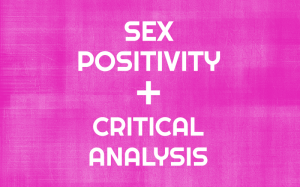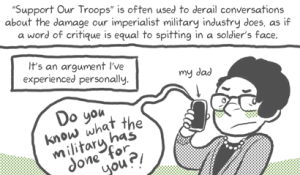
Source: Isotonix
To others, it was strange that as a young kid, I thought about life and death, that I asked questions that didn’t have answers, and that I would often sit for hours with only the thoughts in my head.
Over the years, I did note the time spent in my head thinking, visualizing, seeing patterns, connecting dots, coming up with ideas, stories. And over time, I saw how easy it was to become consumed by my thoughts and feelings, letting them take over.
When the thoughts and feelings were positive, that was a good thing. But most of the time, they were negative.
A lot of the back and forth wasn’t so nice, and there was no subject off limits: weight, hair, reading, writing, talking. I could get mad at myself for almost anything.
Although the reason why all of the above exists is important, that’s not what I want to talk about. What I want to address is how not to get stuck in uneasy emotions.
In a lot of my articles, I talk about accepting ourselves as we are, which means witnessing the negative, depleting emotions and experiencing what they make us feel so that we can move through them to a better emotion.
And that’s all well and good.
But what I want to address here is how to give these diminishing feelings attention without getting consumed by them.
1. Give Ourselves Some Room to See
To keep ourselves from drowning in emotion, we have to be able to see it.
If we can’t identify emotion as separate from us, then it’ll likely run us around and around until we’re too beat up and worn down.
When we start to see emotion as something on its own, then we can work with it and change our relationship to it. We start watching our thoughts, but not becoming them.
A great way to begin witnessing our feelings is through mediation. By focusing on our breath, we can watch thoughts appear and disappear almost like a blip on a radar.
The more we can see our feelings and not attach to them, the easier it is to keep a distance from them.
2. Let Ourselves Respond
When a negative feeling enters my body, I can tell right away.
For me, my stomach tightens and sometimes it feels like there’s an aching in my chest that I can’t get rid of.
When I feel that discomfort in my body, I try to find a place that’s quiet where I can be alone. If I’m in public, I excuse myself to the bathroom.
When I let myself feel the feeling, sometimes I’ll start to cry. Other times, if I’m at home, I scream into my pillow.
What’s important is to let ourselves have a response to what we’re feeling – to give ourselves room to assess the feeling and let our body do as it needs to, to fall into the feeling so we can release it.
Where we get stuck is when we resist falling.
We start spinning our wheels when we keep the emotion inside, which is why it’s important to explore the best ways for us to release emotion.
Maybe you’re like me and you cry or scream into a pillow, or maybe breathing into the area of emotion and exhaling the tension out of the body works. Maybe you need to sit in the grass and look up at the sky, or maybe you prefer to go to a dance class to let the emotion out of the way.
Sometimes if I get wound up, I shake my hands and count to fifteen.
Whatever works for you is perfectly fine.
3. Stop, Eject, Pick, Load, Play
Another way we can keep from getting consumed by the emotion is to initiate stop, eject, pick, load, and play into our lives. It goes something like this:
Someone asks me a question that I don’t know the answer to. I start to feel insecure and somewhat stupid because I don’t know the answer. It takes me about five minutes to realize I’m playing a movie I don’t like – that I’ve seen this movie before and it never makes me feel good.
So here’s what I do:
I stop the movie. I eject the movie. Then I pick another story, one that makes me feel better. I load it and press play.
Think of your emotion as a script or narrative that you can change when you need to.
Once you witness what’s happening inside your head – if you’re constantly on repeat – stop. Eject the emotion from your body by crying, dancing, walking, talking. Pick a new emotion like gratitude. Load all that you’re grateful for into your system and start from there.
4. Ask Questions
Sometimes when I’m feeling stuck in the emotion, what I have to do is start asking questions.
What would I feel like if I wasn’t sitting in my apartment deep in my thoughts? How can I take this feeling and turn it into a learning experience? What is it about these emotions that I can see as opportunities? If I was doing what I wanted to be doing right now, what would it be? What would it feel like to be where I wanted to be right now?
The more questions we ask ourselves when we’re feeling down in the dumps, the easier it is to move into a place of action.
Questions make us think about answers, how to solve problems. Without questioning, we easily repeat the same thought patterns without challenging ourselves to grow.
***
Often, I hear people say that they don’t want to feel this way or that way, because they don’t want to get stuck, so they push the feelings aside to focus on something else.
But the issue there is that the feeling is lying dormant until one day, it all bubbles up to the surface.
We have to work through our feelings as they come up, and hopefully the above can help us do that.
If there are more techniques people are finding helpful, please share them below!
Want to discuss this further? Login to our online forum and start a post! If you’re not already registered as a forum user, please register first here.
Cynthia Kane is a Contributing Writer for Everyday Feminism. Over the last year and a half, she’s relearned the following: how to jump up and down when she’s happy, cry when she’s sad, laugh when something’s funny, take a compliment, smile at strangers, and be open to the fact that everyone is going through it all the time. For more, visit her website or follow her on Twitter @cynkane. Read her articles here.
Search our 3000+ articles!
Read our articles about:
Our online racial justice training
Used by hundreds of universities, non-profits, and businesses.
Click to learn more




















